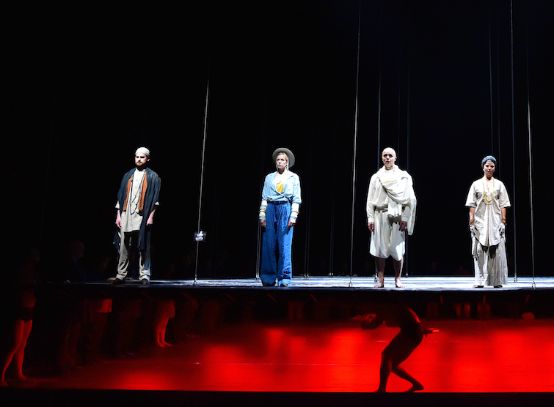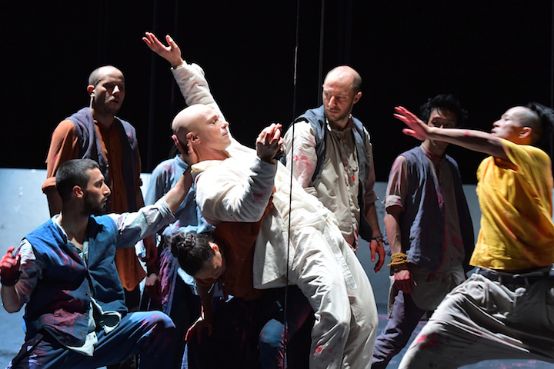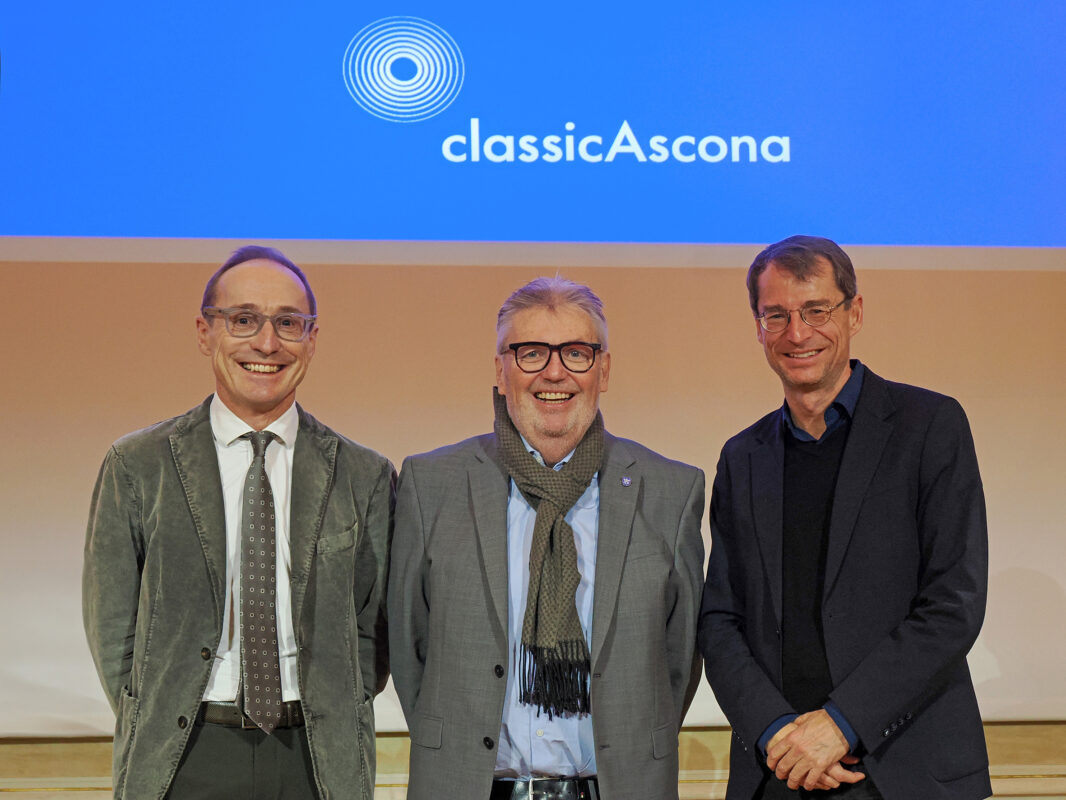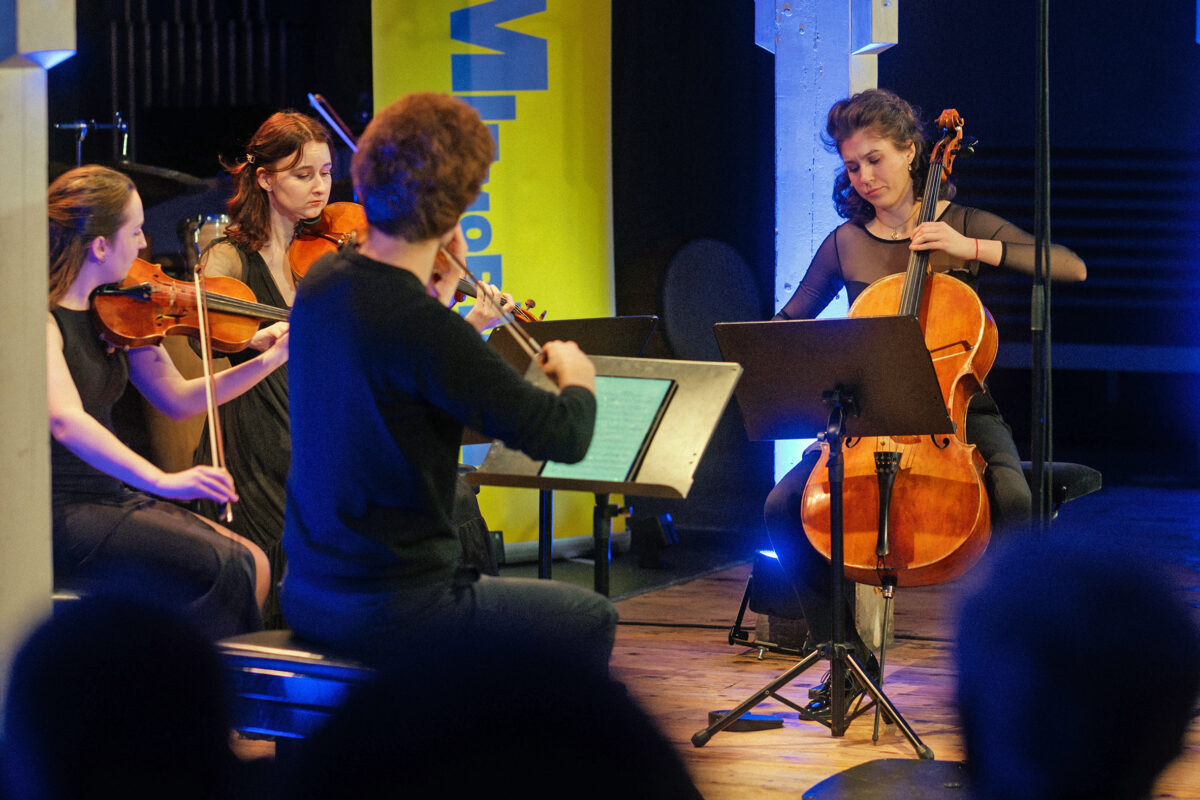Blowing up time
Theater Basel presents the Swiss premiere of the 1980 opera "Satyagraha" by Philip Glass, a co-production with the Komische Oper Berlin and the Vlaamse Opera Antwerpen. The libretto in Sanskrit is based on verses from the ancient Indian epic "Bhagavad Gita".

Time to ponder: This opera, which indulges in softness, lasts just under three hours. The minimalist circling of the music lulls the listener to sleep. No dissonances disturb, no breaks, certainly no abysses. Dancers move on the fluffy carpet of the American composer Philip Glass. They take up the circling gesture: Arms embody waves, feet dart sometimes lithely, sometimes acrobatically across the empty, tilt-forward stage of Theater Basel.
There is no plot in the strict sense. Glass compared his opera, composed in 1980 Satyagraha with a photo album. It could also be called a "life in three pictures". It provides insights into decisive, early biographical stages of the Indian resistance fighter Mohandas Karamchand Gandhi, later known as Mahatma Gandhi: his life in South Africa is shown on stage, the Newcastle protest march in 1913 and his life on the cooperatively organized Tolstoy farm.
Immerse or resist
And so it goes on for hours. Glass usually immerses his sounds in a velvety minor key. A long drawn-out melody, then accompanying strings sound alone, followed by other instruments taking over the cantilenas or varying them slightly. Such a minimalist principle is well known. It demands stamina from the strings (which are threatened by tendonitis). And also from the listener, who has other problems: Either he dives in (or nods). Or he actively resists, thus refusing a spiritual level that is inscribed in the subject and Glass's music.
-

Eastman Company, Rolf Romei (Gandhi). Photo: ©Sandra Then
As time goes by, questions arise: does the subject of "Gandhi" even fit the vision of a musical theater that wanted to "break the boundaries of time and space" in 1980? In the first scene of the first act, there is war. However, Gandhi puts the battle for life and death into perspective: "Consider pleasure and pain, gain and loss, victory and defeat as equal: then prepare for battle. Thus you will bring no evil upon yourself." Well, in Basel there is no criticism of the Bhagavad Gita the central Hindu scripture that was the basis for Glass' librettist Constance DeJong. Instead, there are minor-key loops to which dancers in bloodstained costumes move. Strangely, questionable ideology, contradictions and certainly the superficial intersect. The spiritual and the transcendental can also be presented differently. More boldly perhaps, especially in more open spaces of interpretation.
Outstanding performers
The performances of the musicians, singers and dancers remain unaffected by the problems of the work and its staging. Only very rarely do the Basel Symphony Orchestra (conductor: Jonathan Stockhammer) and the Basel Theater Chorus lack the presence that is difficult to achieve in the pit. The cast of singers is also impressive. The tenor Rolf Romei from Schaffhausen in the role of Gandhi is brilliant. The same applies to soprano Cathrin Lange (Miss Schlesen), mezzo-soprano Maren Favela (Kasturbai) and bass-baritone Andrew Murphy (Mr. Kallenbach). The highly acclaimed Eastman dance company under the direction of choreographer Sidi Larbi Cherkaoui is impressive; even in seemingly chaotic formations, the tremendous compactness of the troupe is palpable. What remains of this extremely professional, almost too brilliant production? In the end, certainly the realization that three hours of Philip Glass is enough. Also the simple realization that Satyagraha is not one of the opera highlights. It simply lacks depth, both musically and in terms of content.








